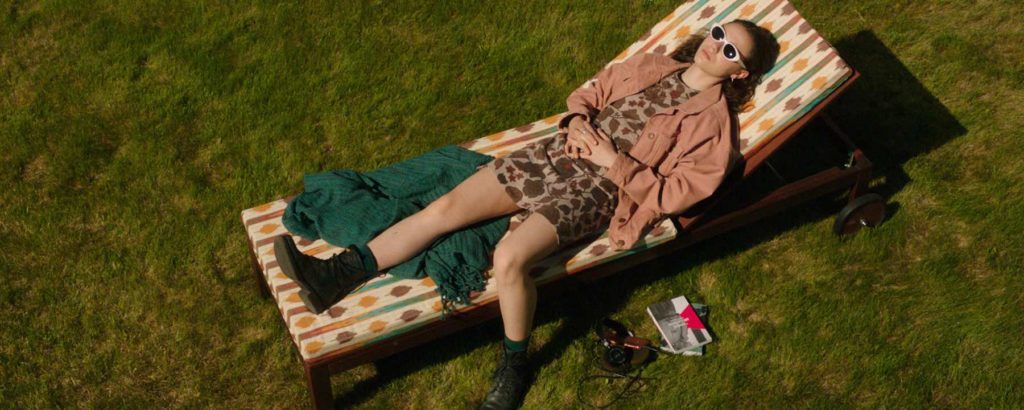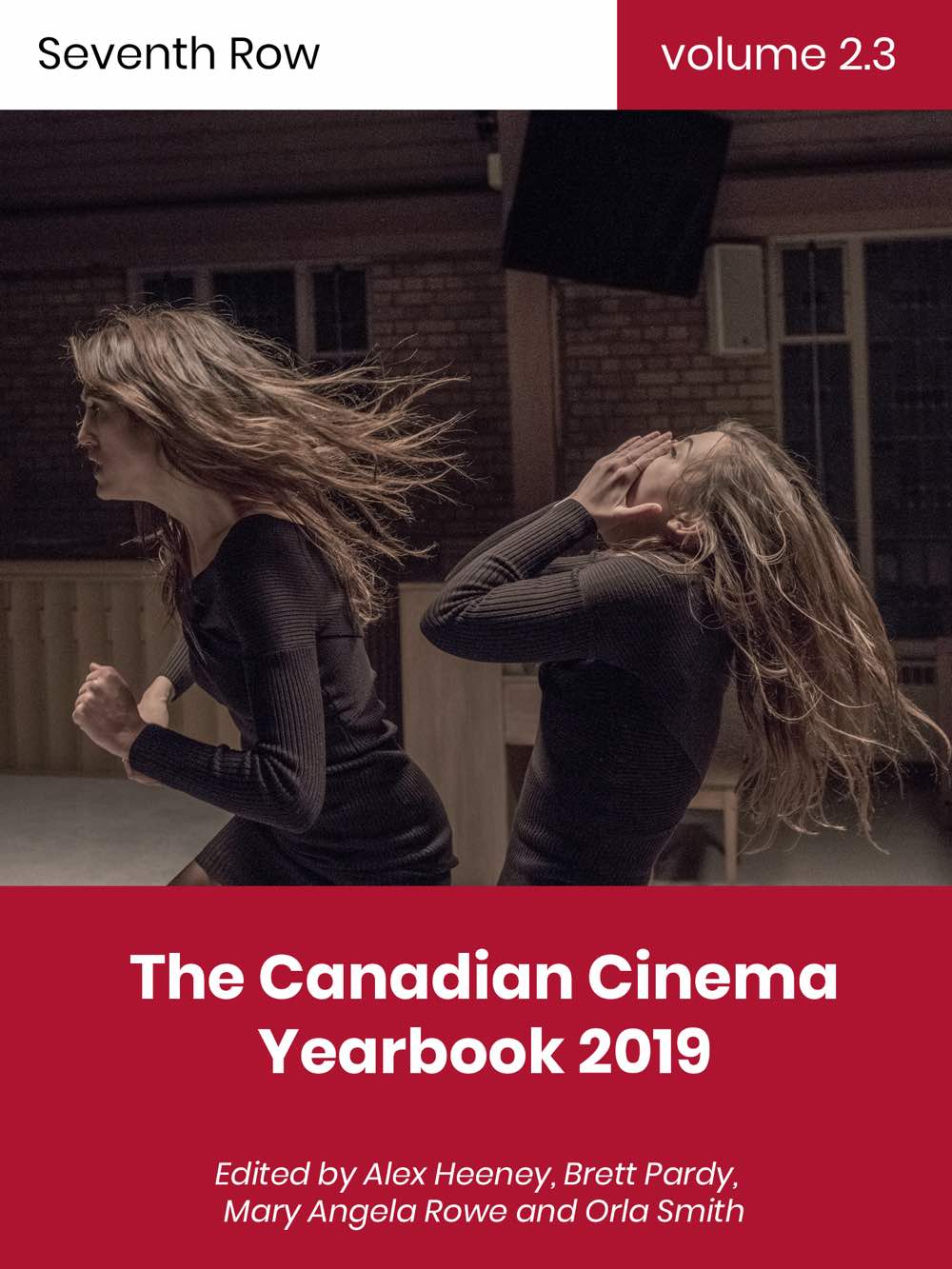Director Sébastian Pilote and actress Karelle Tremblay discuss their award-winning coming-of-age story, The Fireflies Are Gone (La Disparition des Lucioles). This is an excerpt from our ebook The 2019 Canadian Cinema Yearbook, which is available for purchase here.

“Remember how it used to be,” says Léo (Karelle Tremblay), the teenage protagonist of Sébastien Pilote coming-of-age story, The Fireflies are Gone (La Disparition des Lucioles). A month away from graduating high school, Léo is already cynical about the world she’ll be entering as an adult. Her parents split up, and her stepfather, the local right-wing radio personality, helped push her union organizer father out of his job and out of the city; he now works up north. The city of Saguenay where the film is set is in transition, and so is Léo. Once a manufacturing centre, but has recently become more of a tourist destination and a centre for energy research. Léo sees her world and family crumbling around her, and the local economy is doing much the same, uncertain about what that means for her future.
When Léo meets local guitar teacher Steve (Pierre-Luc Brillant of C.R.A.Z.Y. fame), a quiet soul more than double her age, she decides to take lessons as a means of discovering more about him. The pair form a platonic bond as two drifting souls. Steve is gentle and kind, much like Léo’s father, though Steve lacks ambition. Both men project a kind of masculine ideal that feels like a relic, a strong contrast with Léo’s brash and conceited stepfather who now holds local power. The three men in Léo’s life reflect personality types and values currently in conflict — both for Léo and the city itself.
Pilote has a rare gift for gently depicting alienated characters. Léo spends much of the film on her own, walking around town, escaping her mother and step-father, and trying to figure out what she wants. Even when she is with her friends, she feels apart from the group. Tremblay’s extremely charismatic performance and Pilote’s direction captures the loneliness and helplessness of adolescence. Tremblay, who previously co-starred in Anne Émond’s wonderful Our Loved Ones, gets to take centre stage (and centre frame) in this film, proving she is one of the most exciting and talented emerging actors today.
Back when the film premiered at the Toronto International Film Festival in September 2018, I talked with director Pilote and lead actress Tremblay about the film’s political context, crafting Léo, and how Saguenay has changed since the film was made. Since then, The Fireflies are Gone picked up the Best Canadian Film prize at last year’s TIFF and was listed in Canada’s Top Ten Films of 2018. It is now screening in a limited run at the TIFF Bell Lightbox and is available on VOD on Canadian iTunes.
Seventh Row (7R): Where did the idea for The Fireflies are Gone come from?
Sébastien Pilote: I do not remember. Often, when I begin a film, it’s with little ideas, images, or intuitions, but it’s rarely with the need to tell a story. I think I tell a story to express those images or intuitions. Of course, here, I wanted to make a more accessible film. I wanted to make a film like you can write a song.
If I make an analogy, I think my other films were more like chamber music. And here, I wanted to write a good pop song. An international hit, if possible, but at least something with the structure of popular music. It’s a bit like if I’d wanted to write a novel but with simple sentences, a bit devoid of lyricism or poetry. Compared to my other films, I think it’s less poetic. It’s more like prose. The images say what they have to say, and that’s it. There’s no double meaning.
The idea was to have a young woman — I transpose myself a little in that character — in a situation of a power vacuum. She lives in a world where there’s the stepfather, omnipresent, and a father who’s absent, in exile, and that she idealises. In between, she discovers another person, Steve (Pierre-Luc Brillant), a substitute for a father figure. In the story, he gives her guitar lessons.
To me, the music in that film is synonymous with naivety and with a carefree attitude, with innocence. The fireflies are like sparks of innocence. At the beginning of the film, there is nothing innocent about Léo: she’s very cynical and sarcastic. I think we live in a society where cynicism dominates. It prevents us from seeing the small beauties, the things that should be seen with children’s eyes. Steve, on the other hand, he’s remained a bit of an adolescent; he’s not very critical of things around him. He doesn’t ask for much.
It’s a situation a bit like in Hamlet. I wanted to place this character in a situation where she is forced to live with the stepfather who has pushed away her father. This was an idea that was there at the beginning, and I think it’s interesting from a dramatic point-of-view. It’s a topic that can seem very serious, but which I wanted to play in a lighter way.
7R: Where did the title The Fireflies Are Gone come from?
Sébastian Pilote: It’s a long story. It’s the title of a political article written by Pier Paolo Pasolini, the filmmaker. It was about neo-fascism and the power vacuum, how the powerful lights of neo-fascism prevented us from seeing the opposition to that power: the artists, the activists, the poetry in everyday life. He referred to the same idea, that the fireflies had disappeared. But actually, when we say that the fireflies have disappeared, it’s because we’ve stopped looking at them, either because we’re looking in the wrong place, or because it’s too bright. We have to turn off the lights of fascism and hate. We need obscurity to see the fireflies.
It’s a kind of paradox, like in cinema: in order to see the image on the screen, we need to be in the dark. That’s what the film is about: Léo had to go away so that we could see again a spark of innocence and hope. In Italian, ‘firefly’ was a slang term for prostitute, women who hide in dark alleys, but it also defined the young women working at the cinema who would show you to your seat with their flashlight. The title, in a way, brings poetry into a film that avoids lyricism. It’s a key to read the film.
To read the rest of the article, purchase a copy of The 2019 Canadian Cinema Yearbook here.


